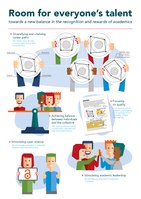
Photo from wikipedia
Knowledge brokers are often portrayed as neutral intermediaries that act as a necessary conduit between the spheres of science and policy. Conceived largely as a task in packaging, brokers are… Click to show full abstract
Knowledge brokers are often portrayed as neutral intermediaries that act as a necessary conduit between the spheres of science and policy. Conceived largely as a task in packaging, brokers are expected to link knowledge producers and users and objectively translate science into policy-useable knowledge. The research presented in this paper shows how brokering can be far more active and precarious. We present findings from semi-structured interviews with practitioners working with community-based groups involved in collaborative water planning in New Zealand’s South Island region of Canterbury. Working in a highly conflicted situation, our brokers had to navigate different knowledges and epistemic practices, highly divergent values and grapple with uncertainties to deliver recommendations for regional authorities to set water quality and quantity limits. Conceiving science and policy as interlinked, mutually constitutive and co-produced at multiple levels, rather than as separate domains, shows how the brokers of this study were not only bridging or blurring science policy boundaries to integrate and translate knowledges. They were also building boundaries between science and policy to foster credibility and legitimacy for themselves as scientists and the knowledge they were brokering. This research identifies further under-explored aspects of brokering expertise, namely, the multiple dimensions of brokering, transdisciplinary skills and expertise, ‘absorptive’ uncertainty management and knowledge translation practices.
Journal Title: Palgrave Communications
Year Published: 2020
Link to full text (if available)
Share on Social Media: Sign Up to like & get
recommendations!